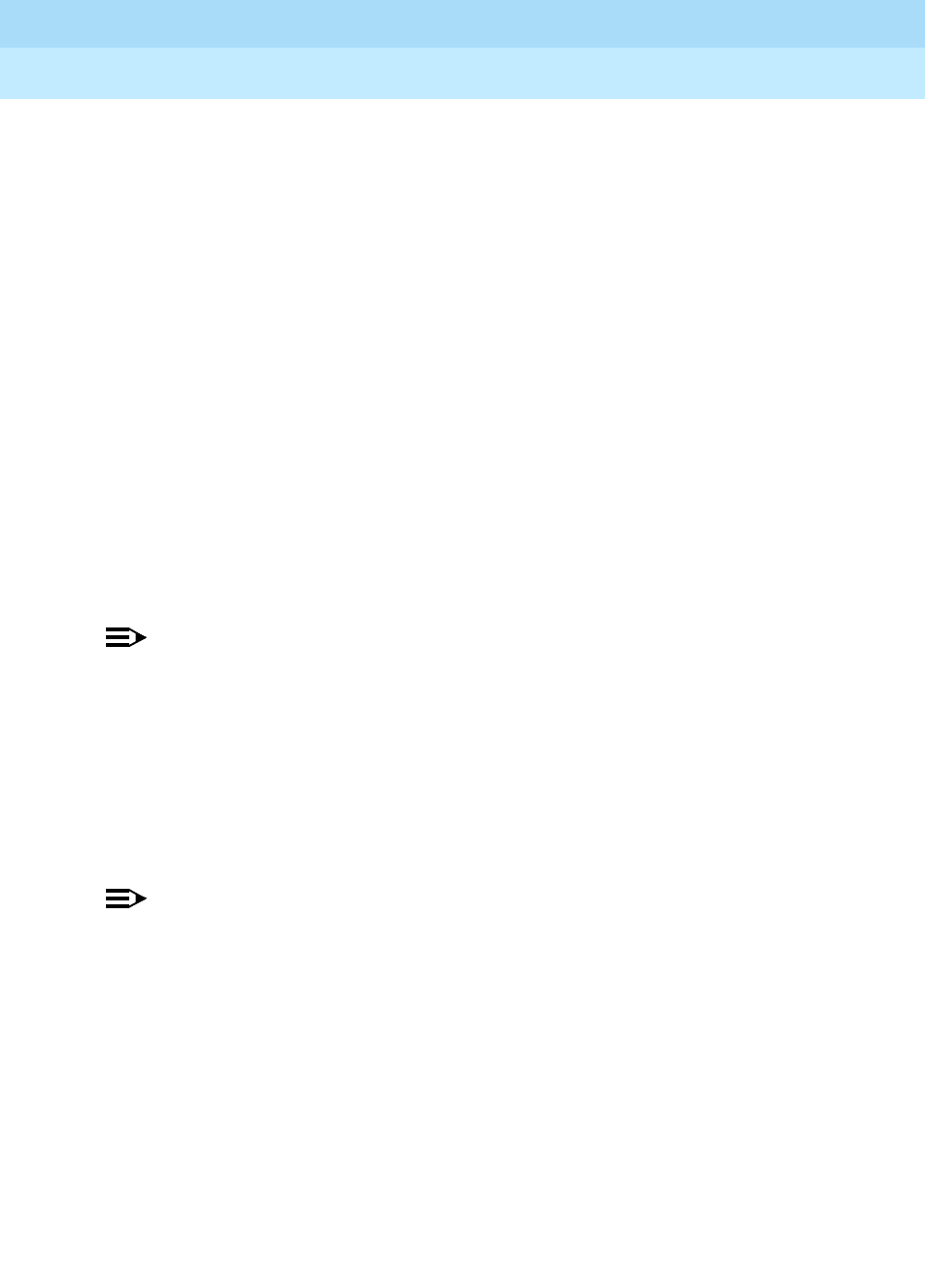
DEFINITY ECS Release 8.2
Administrator’s Guide
555-233-506
Issue 1
April 2000
Screen reference
844Multifrequency-Signaling-Related System Parameters
17
free
This signal indicates that the called party is idle. On DID calls, the signal is sent to
the CO to indicate that the called party is idle and the call is terminated
successfully. If the switch receives this signal on DOD calls, it connects the trunk
to the calling party.
intercept
This signal indicates that the called party number is not in service or is not correct.
On DID calls, if intercept treatment is set to provide a tone, tone is sent to the CO
to indicate that the called number is not valid. If the switch receives the signal on
DOD calls, the switch plays intercept tone to the calling party and drops the trunk.
mct
This signal identifies the call as one that needs to be traced by the CO. DEFINITY
ECS then generates an MFC Call Trace Backward Signal (administered on the
Multifrequency-Signaling-Related System-Parameters screen) during call setup
instead of the “free” signal. If the terminating station’s COR has this feature set to
y, the CO collects trace information before releasing the calling party.
NOTE:
If the station’s COR has MF Incoming Call Trace set to y and the “mct”
signal is not defined, then the “free” signal is sent.
tariff-free
This signal is sent when the trunk group provides an “800” service. DEFINITY
ECS generates an MFC tariff-free backward signal (administered on the
System-Parameters Multifrequency-Signaling screen) during call setup instead of
the “free” signal, facilitating CO billing.
NOTE:
If the trunk is administered as a tariff-free trunk and the “tariff-free” signal is
not defined, then the “free” signal is sent.
tie-free
This signal is used only when an incoming call is received and defined and the
incoming facility is a tie trunk. Otherwise, the free signal is used.
toll-busy
This signal, used in China, is sent to indicate that the called party is busy if the call
is an automatic toll call.
